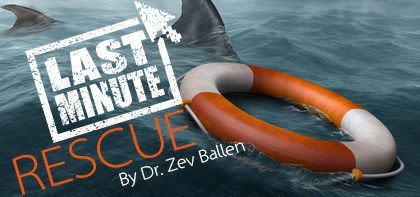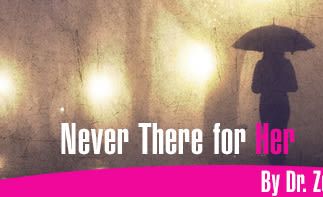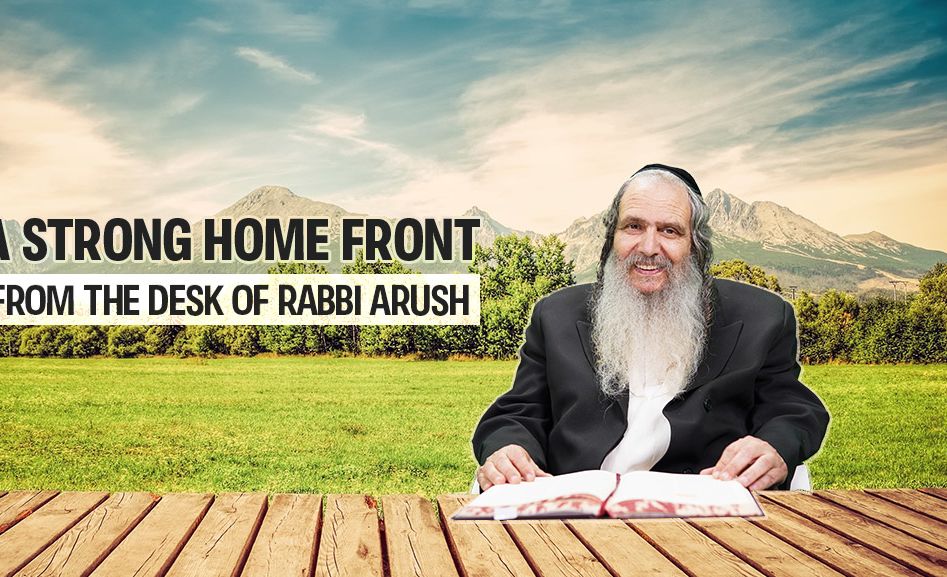
Last-Minute Rescue
Resentments built up in Chani; despite the fact that her husband seemed to be doing everything that the Torah expected of him, she was sick of being alone. She wanted out...

When Chaim and Chani got married, neither of them had an inkling that they would become Torah observant. Their journey has not been an easy one, but we can all learn a lot from it.
After becoming religious, Chaim started learning in yeshiva and Chani found a job to support them. Both of them were initially infatuated with their new way of life, and yet they had many doubts about whether they were following the Torah correctly. Because they were new to Judaism, Chaim and Chani wanted to do everything just right.
Chaim began getting advice from a Rabbi who told him that he must stop listening to his wife and parents and just listen to him. The Rabbi told Chaim that learning was Chaim’s main task in life. So Chaim took the Rabbi’s advice and threw himself into learning at the expense of his marital peace.
Chani, who was not raised in a home where her father learned in yeshiva for many long hours, quickly found herself feeling overwhelmed and lonely. Chaim would leave at 7 am, come home for short dinner break and  go back to learn until 9 pm. Resentments built up in Chani and she didn’t know how to speak to her husband about them because it seemed that he was just doing what the Torah expected of him.
go back to learn until 9 pm. Resentments built up in Chani and she didn’t know how to speak to her husband about them because it seemed that he was just doing what the Torah expected of him.
Five kids later, Chani was falling apart. She developed irritable bowel syndrome and a severe phobia of driving. Not living in an area where public transportation was readily available, Chani was no longer able to drive her kids around to the many places that mothers go with their children. Chani sank into a depression but still didn’t want to complain to her husband. Chaim knew that his wife wasn’t doing well, but he didn’t know what to do. His Rabbi told him that the best thing he could do for his wife and kids was to never miss a day of learning. And so it went, until Chani’s parents got involved and pushed their daughter to get a divorce.
In a last ditch effort, they decided to try some marital counseling. So they started working with a life coach from Chaim’s yeshiva who did marital counseling. The marital coach told Chaim that he had a block in knowing what his and his wife’s feelings were. He told Chani that she was overly dependent on her mother and acting in a passive aggressive way towards her husband. The counselor worked with Chaim by presenting him with a choice of four or five feeling words and asking him to pick the one that best matched his feeling. He worked with Chani by telling her stories about other women who had emotionally separated from their mother’s.
After the third session, Chani called a divorce lawyer.
When word got out that they were headed for a divorce, somebody gave Chaim a copy of The Garden of Peace.Chaim read a few pages and realized that this was what was going to save his marriage. The problem was that time was quickly running out. By the time he could read the book and try to convince Chani to read Woman’s Wisdom it would be all over.
In tears, Chaim called Chani and told her about the Garden of Peace. Chaim was desperate to save his marriage and family so he begged Chani to try emuna coaching. Chani knew deep down that with more emuna that she could feel better about her situation, so she agreed to go.
Instead of focusing on what was wrong with each of them, the emuna coach guided them to believe that they could find a higher meaning that was good even in what was “wrong” with each other.
It was gritty at times, but it was real. They obviously still loved each other but hadn’t yet realized that part of how you win in marriage is by losing; part of how to succeed in marriage is by failing.
Chaim agreed to switch to learning part-time at our yeshiva (Yeshiva Chut Shel Chesed) and spend a half day at home driving his wife around. It was almost that simple!
Identifying what he’s feeling is still not Chaim’s greatest strength; nor is Chani fully emotionally separated from her mother and over her irritable bowel syndrome and phobia. Hashem knows that their relationship still needs these “problems” for a while longer.
Actually Chaim and Chani are fighting more than they ever did before – which, for them, is also good. When they get into a fight they usually resolve it by telling themselves: “The way that this fight will be worthwhile is we are going to learn the lesson that we were meant to learn from it and never go there again.” Chaim and Chani now know that if they look for the higher meaning in the fights and obstacles that they are encountering that they’ll find it.
Ultimately this is the greatest power that any of us have.
Anyone who has suffered in a marriage or in life and who has used that suffering to grow knows full well that they have found the greatest gift that there is in life – the gift of knowing that pain isn’t happening to us its happening for us. People with great marriages know that only from pain comes the greatest love and sense of commitment that wouldn’t come otherwise.







Tell us what you think!
Thank you for your comment!
It will be published after approval by the Editor.